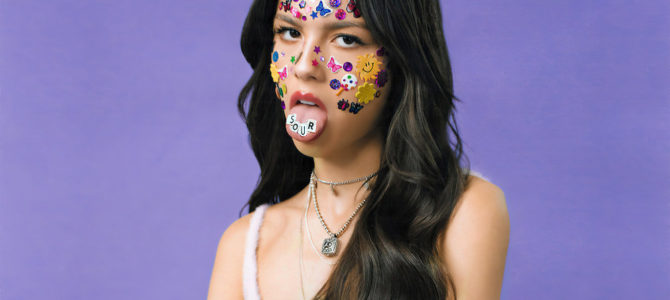Every time I hear Olivia Rodrigo’s “Good 4 U,” it’s 2015 and I’m back on my bedroom floor, crying over the boy who chose a skinny blonde over awkward, chubby me. And every time that cathartic experience ends, I thank God for Rodrigo.
I, like millions of young women, have been looking for a new breakup-song extraordinaire since Taylor Swift left us for boring tempos and ambiguous storylines. Actress and singer-songwriter 18-year-old Rodrigo could be exactly what we’ve been looking for, but now that she’s skyrocketed to fame, I’m worried her authentic brand won’t last long.
Best known for her role as Nini Salazar-Roberts on the Disney Plus series “High School Musical: The Musical: The Series,” Rodrigo wrote and published her first song “All I Want” for the show in 2019. The song was an immediate hit and in January, Rodrigo did it again with her debut single “Drivers License:”
And I know we weren’t perfect but I’ve never felt this way for no one
And I just can’t imagine how you could be so okay now that I’m gone
Guess you didn’t mean what you wrote in that song about me
‘Cause you said forever, now I drive alone past your street
I know I can’t be the only girl who’s driven wistfully past an ex’s house. This song speaks to my soul. The hit single blew up on social media, immediately set streaming records on Spotify, was on the Billboard Hot 100 chart less than two weeks after its release, and even got its own “Saturday Night Live” sketch.
Rodrigo has been Billboard’s number one artist on the Top 10 list for the third week in a row. She’s received more than 2.5 billion streams on Spotify and is the first artist to chart three songs in the Top 10 all from a first LP.
While she doesn’t have a spectacular voice or a unique range, the numbers prove it: Rodrigo has a unique ability to tap into teenage and young-adult angst and emotion. She’s struck a chord with girls who can relate to familiar feelings of jealousy or heartbreak, and all because she’s been relatively uncorrupted by our leftist-politicized culture.
Her songs don’t revolve around a feminist frame of false empowerment or finding strength where strength isn’t needed — they’re real, and they’re sad. And yes, women are allowed to be sad about men.
Take my favorite, “Good 4 U,” where Rodrigo hits back in anger at a former love interest who moved on quickly from the relationship. Cue headbanging and blasting the stereo at full volume with your best friends after you saw him:
Well, good for you, you look happy and healthy
Not me, if you ever cared to ask
Good for you, you’re doin’ great out there without me
Most trendy female artists like Miley Cyrus, Ariana Grande, and Cardi B reject female emotion. They sing about not needing a man, getting over relationships, and bouncing back better than ever when really, all we need is a moment of heartbreak.
Swift was good at that, and until she was turned by the bloodthirsty feminist mob, Swift gave us some of the best years of her life. I was screaming and crying and cursing in the rain right along with her. Rodrigo revives what we all loved about early Swift: her ability to tap into the most simple, but most specific experiences of love, anger, revenge, and sorrow.
Is it too much to ask for one popular singer who can channel her rage into lyrics without highlighting my authority as a strong, independent woman? Tell me that after I put Ben & Jerry’s down, not while I’m mid-spoonful.
I don’t expect Rodrigo to sing about heartbreak forever, but if she bows to pressure before her glory years are up, she’ll turn into another “female empowerer” who spews profanities and twerks in skimpy outfits.
Rodrigo’s honesty only goes one of two ways: she transforms into one of these “empowerment” figures when mainstream culture demands it, or she loses fame as she grows older. Let’s hope Rodrigo chooses the latter and keeps her identity.









